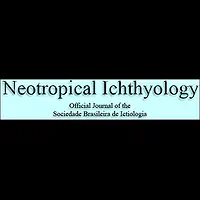Effects of tourist visitation and supplementary feeding on fish assemblage composition on a tropical reef in the Southwestern Atlantic

Abstract
The effects of tourist visitation and food provisioning on fish assemblages were assessed by visual censuses (stationary technique) carried out in a tropical reef in Northeastern Brazil. Comparisons of species abundance, richness, equitability, and trophic structure in the presence (PT) and absence (AT) of tourists suggest that tourist visitation and supplementary food influenced the structure of the fish assemblage, as follows: (a) diversity, equitability and species richness were significantly higher on the AT period, while the abundance of a particular species was significantly higher during PT; (b) trophic structure differed between the AT and PT periods, omnivores being more abundant during the latter period, while mobile invertivores, piscivores, roving herbivores and territorial herbivores were significantly more abundant on AT. Reef tourism is increasingly being regarded as an alternative to generate income for human coastal communities in the tropics. Therefore, closer examination of the consequences of the various components of this activity to reef system is a necessary step to assist conservation and management initiatives.